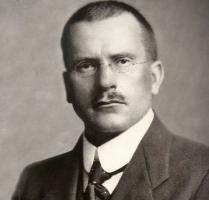Daniel Kahneman: biography of this psychologist and researcher
Daniel Kahneman (1934) is a nationalized American Israeli psychologist who has carried out important studies in decision making, judgment, theory of economic behavior and economic behavior, as well as experimental economics. The latter have impacted not only psychology but also the economy and human activity in business, an issue that led him to obtain the nobel prize for economics in 2002.
Next we will see a biography of Daniel Kahneman as well as some of the main contributions of him.
- Related article: "History of Psychology: main authors and theories"
Daniel Kahneman: biography of this influential psychologist
Daniel Kahneman was born on March 5, 1934 in Tel Aviv, Israel; while his mother, originally from Lithuania, visited relatives. The first years of his lived them in Paris, a city to which both parents moved since 1920.
His stay in Paris was marked by the political context of the Nazi occupation, at which point his father was arrested and later released. In his writings, Kahneman himself has related that the experience of
Living in this context marked in an important way his later interest in the study of sociology.In 1948, Kahneman and his family moved to Palestine, shortly before the creation of the State of Israel. Eight years later, in 1954, Daniel Kahneman majored in psychology with a bachelor's degree from the Hebrew University of Jerusalem. As soon as he had finished his training as a psychologist, Kahneman he worked in the area of psychology of the Israeli defense forces.
After this he continued his professional development in the United States, specifically at the University of Berkeley, in California, where he obtained a doctorate in psychology in the year 1958. As a teacher and researcher, Kahneman has worked at the Hebrew University, the University of Michigan, Harvard University, among others. He is currently serving as an academic at Princeton University.
Theoretical development
Initially, Kahneman focused his research on the study of attention and perception. Later he focused on the study of two processes that would finally lead him to be recognized as one of the most influential psychologists of the time: judgment and decision making. However, towards the 90's, Kahneman gave a new turn to his studies and began to investigate in the area of hedonistic psychology.
Law of small numbers
Along with another Israeli-born psychologist, Amos Tversky, Daniel Kahneman developed important theories on behavioral economics. For example, the law of small numbers.
Through this concept, psychologists verified a fairly common phenomenon: the tendency to value the sample distribution as population, regardless of the sample size; which has the consequence of hasty and biased conclusions.
Tversky's mathematical studies, and Kahneman's science training led to the development of this law and to critically look at various scientific investigations as well as to explain various phenomena, such as the interpretation of political preferences and various cognitive biases.
Perspective theory
One of Kahneman's most recognized theories, which he developed in collaboration with Tversky, is the perspective theory. It is recognized as one of the leading theories on behavioral economics, and suggests that, the less uncertainty about the consequences of a decision, the greater the risk orientation of some people.
Before his theories, economics held that decisions were determined by the calculation of final gains of each possible scenario, as well as the possibility that the latter actually get. Thus, each person would assess which is the most likely scenario and make a decision based on that.
However, Kahneman's research showed that people were unable to analyze complex situations involving decision making when there was uncertainty about their future consequences. In fact, the evaluation based on the probability of occurrence of a certain result was an absent exercise for decision-making in almost all the people who participated. Thus, they argued that this exercise is finally based on determining what is the value of profit and loss, and not just in the most likely end result.
- You may be interested: "Daniel Kahneman's perspective theory"
Hedonistic psychology
By connecting work in economics with hedonistic psychology, Kahneman develops a new line of research focused on analyzing the welfare situation and the possibilities of reaching a full state of happiness based on the economic situation.
This line connects psychology with economics and sociology, since it investigates the effects of economic dynamics on individual psychology and social practices. In the same sense, the focus of this theory is not so much economics as research on quality of life.
Main works
The text "Pupillary diameter and memory load", from 1966 and published in the Science journal, was one of the pioneering works on this issue. Later, in 1971 and together with Amos Tversky, Kahneman published the article "Belief in the law of small numbers", a work that inaugurated the theory that bears the same name.
In 1979 they published the article "Prospective theory: an analysis of decisions under risk", which became one of the most influential works of both psychologists.
Likewise, for his contributions to the understanding of decision-making in the economic context, as well as in cognitive psychology related to this, Kahneman received the nobel prize for economics in 2002 and together with Vernon Smith.
In 2011 he received the Talcott Parsons Award from the Academy of Arts and Sciences for his contributions to the social sciences. In the same audience the best-seller Think fast, think slow.
Bibliographic references:
- Daniel Kahneman (2018). Encyclopedia Britannica. Retrieved September 4, 2018. Available in https://www.britannica.com/biography/Daniel-Kahneman
- Daniel Kahneman (2012). Totally History. Retrieved September 4. Available in http://totallyhistory.com/daniel-kahneman/



